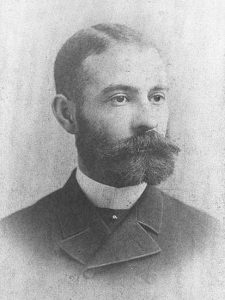
By Sis. Tarpley, NDG Religion Editor
Daniel Hale Williams was one of the first physicians to perform open-heart surgery in the United States; and, he founded a hospital with an interracial staff. Born on January 18, 1856, in Hollidaysburg, Pennsylvania, Williams pursued a pioneering career in medicine.As a Black doctor in 1893, Dr. Williams opened Provident Hospital, the first medical facility to have an interracial staff. He was also one of the first physicians to successfully complete pericardial surgery (the membranous sac enclosing the heart) on a patient. Dr. Williams later became chief surgeon of the Freedmen’s Hospital.
After the death of his father, a 10-year-old Daniel was sent to live in Baltimore, Maryland, with family friends. He became a shoemaker’s apprentice but disliked the work and decided to return to his family who had moved to Illinois. Like his father, he took up barbering, but ultimately decided he wanted to pursue his education.
Dr. Williams worked as an apprentice with Dr. Henry Palmer, a highly accomplished surgeon, and then completed further training at Chicago Medical College. He set up his own practice in Chicago’s South Side and taught anatomy at his alma mater. He became the first Black physician to work for the city’s street railway system.
Dr. Williams who was called Dr. Dan by patients adopted sterilization procedures for his office, informed by the recent findings on germ transmission and prevention from Louis Pasteur and Joseph Lister.
Due to the discrimination of the day, Black citizens were still barred from being admitted to hospitals and Black doctors were refused staff positions. He firmly believed this needed to change so in May 1891 Dr. Williams opened Provident Hospital and Training School for Nurses, the nation’s first hospital with a nursing and intern program that had a racially integrated staff. The facility, where Dr. Williams worked as a surgeon was publicly championed by famed abolitionist and writer Frederick Douglass.
In 1893, Dr. Williams continued to make history when he operated on James Cornish, a man with a severe stab wound to his chest who was brought to Provident. Without the benefits of a blood transfusion or modern surgical procedures, Dr. Williams successfully sutured Cornish’s pericardium. Thus becoming one of the first people to perform open-heart surgery; Cornish lived for many years after the operation. Physicians Francisco Romero and Henry Dalton had previously performed pericardial operations outside of the U.S.
In 1894, Dr. Williams moved to Washington, D.C., where he was appointed the chief surgeon of the Freedmen’s Hospital, which provided care for formerly enslaved Black people. The facility had fallen into neglect and had a high mortality rate. Dr. Williams worked diligently on revitalization, improving surgical procedures and increasing specialization. Dr. Williams also launched ambulance services and continuing to provide opportunities for Black medical professionals, among other feats.
In 1895, he co-founded the National Medical Association, a professional organization for Black medical practitioners, as an alternative to the American Medical Association, which didn’t allow Black membership.
Beginning in 1899, Dr. Williams also made annual trips to Nashville, Tennessee, where he was a voluntary visiting clinical professor at Meharry Medical College for more than two decades.
He became a charter member of the American College of Surgeons in 1913. In 1926 Dr. Williams experienced a debilitating stroke and died five years later on August 4, 1931, in Idlewild, Michigan.
Today, Dr. Williams’ work as a pioneering physician and advocate for Black doctor’s presence in medicine continues to be honored by institutions worldwide.









Fascinating history of how one person can bring about effective changes within his sphere of influence.
Often societal values and attitudes “get stuck” in the culture’s old illogical, unjust and uninformed ways.
It takes individuals with spunk and courage to “unstick” society’s memes.